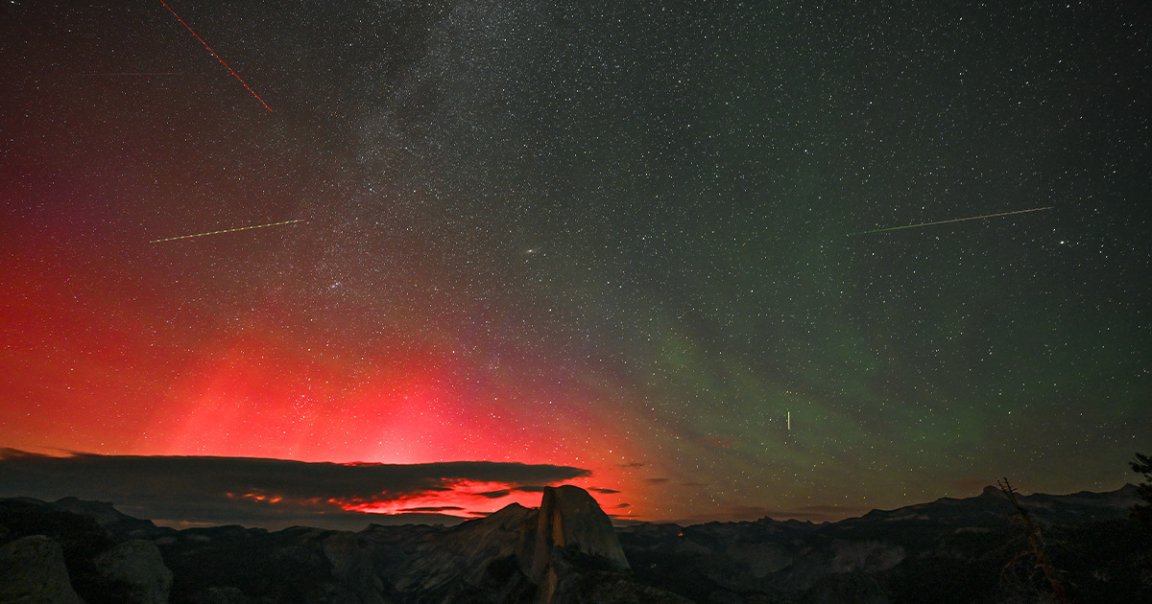
Bad Turns Good
Looks like the Sun is having another one of its outbursts again, because it just blasted us with a severe geomagnetic storm that crackled through our planet’s magnetic field.
The Space Weather Prediction Center said it detected the solar event on Monday morning when it was classified as a severe G4 level storm — the second most intense kind.
By that same afternoon, the event eventually weakened to a G2-level storm — but not before zapping our skies with absolutely stunning auroras.
Now, observers the world over — not to mention off-world — are sharing the magical glimpses they got of these incredible light displays, which just so happened to coincide with the year’s best meteor shower.
Fun in the Sun
Geomagnetic storms are caused by coronal mass ejections, which is when the Sun expels enormous blobs of solar material into space.
Occasionally, some of these ejections hit our planet, and their payload of charged particles can wreak havoc on the Earth’s magnetic field.
If intense enough, the effects of the ensuing solar storm can be serious, such as disrupting communications infrastructure and causing power blackouts.
Most of the time, though, they go unnoticed. But if we’re lucky, they create the marvelous curtains of light dancing across the night sky known as the northern lights, or auroras.
Cosmic Coincidence
This year, the stars aligned — well, strictly speaking, just the Sun did — and hurled a coronal mass ejection at Earth right as the Perseids meteor shower hit its peak, when it can deliver up to a hundred shooting stars in an hour.
It’s not every day you get to see a dazzling aurora be the backdrop to a barrage of luminescent meteors, and skywatchers the world over marveled at the rare event’s beauty.
“Aurora over the Grand Canyon, during the peak of the Perseids, with lightning flashes on the horizon. Does it get any better?” one photographer tweeted, sharing a photo of the spectacle.
We’ve even gotten a view of this from space, shared by NASA astronaut Matthew Dominick aboard the International Space Station.
This sky display will be hard to top — but keep your eyes peeled for storms like these in the future, because a lot of the time, auroras follow.
More on solar phenomena: NASA Investigating Mysterious Radio Signals From the Sun